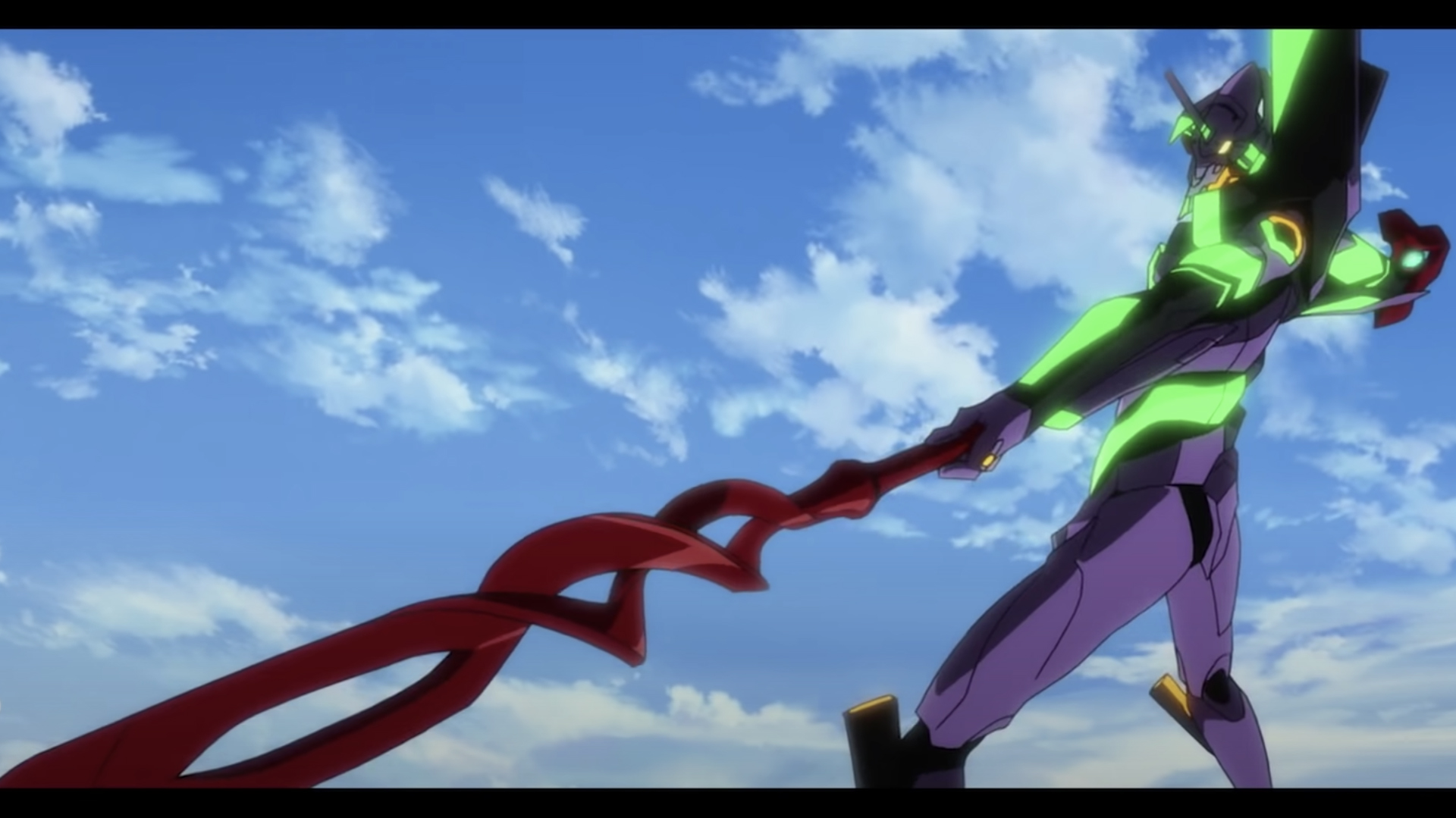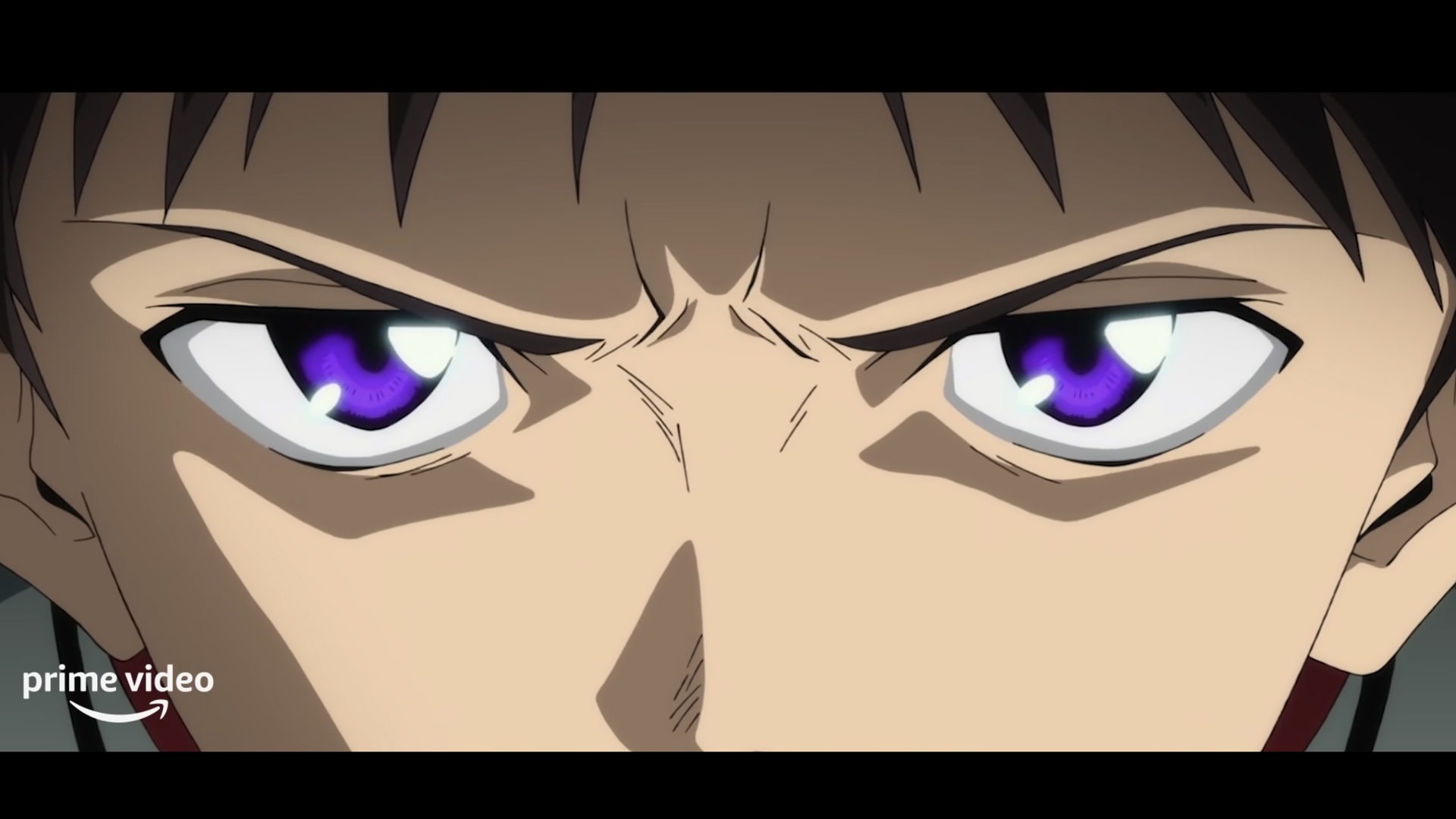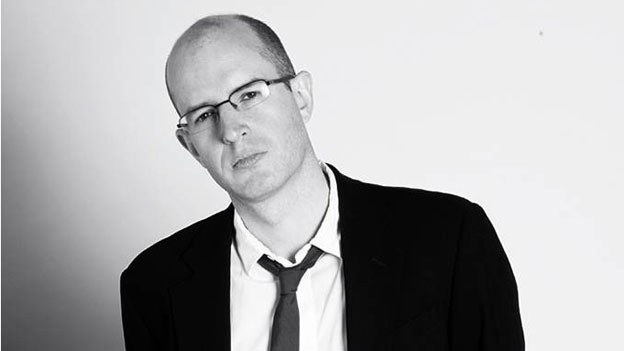Netflix has a legendary anime with 100% on Rotten Tomatoes but I prefer Amazon's remake
The Evangelion franchise raises two big questions: which to see first, and what the hell is going on?


Neon Genesis Evangelion is on Netflix. As you can probably guess just by reading its title out aloud, it's a Japanese anime. For many people, however, it's more like the Japanese anime. Broadcast in 1995-96, it starts out as your typical Japanese tale of giant robot suits – known as Evangelion or Eva – piloted by angsty teens, fighting invading aliens. However, it rapidly spins out into something far weirder. There are 26 episodes of about 24 minutes each, so show runner Hideaki Anno gave himself plenty of time to spread out and explore his characters and the extremely odd world he'd created for them. Neon Genesis Evangelion is set in a post-apocalyptic future Earth that is about to suffer another, even worse apocalypse. That is, unless the kids in their giant Eva mecha battle suits can defeat the hugely powerful 'Angels' from outer space.
This is one of the most celebrated and talked about anime of all time. It's up there with the likes of Cowboy Bebop – which is also on Netflix, and was recreated as a live action series by Netflix. Erm, well, until they cancelled it after one series, anyway. Its impact is also comparable to older anime classics such as Akira and Ghost in the Shell, in terms of its innovation and scope. It was a big coup for Netflix to secure the original series, although there were some grumbles from super-fans about the new translation they commissioned for it, and the absence of its original theme tune for licensing reasons. Even so, we're talking here about a show with a 100% Rotten Tomatoes rating – you really can't get better than that.
Unfortunately, Netflix just can't catch a break right now. It just so happens there is also a newer version of Neon Genesis Evangelion that in my opinion is even better than the original… and it's on Amazon Prime Video, Netflix's arch rival. Curse you Amazon Prime Video!
Admittedly, for real OG fans of Evangelion, the idea that the movie series remake/remodel that Anno assembled between 2007 and 2021 beats the original TV series is rather contentious. That's because they grew up with the TV show, and the movies – there are four in total – start out a lot like that show, but then start to deviate in a number of key ways. For those who grew up with the original, these changes are bound to seem jarring.
Thankfully, I'm in the unusual position of having seen the movies first, before moving on to the TV series – which I actually found that suffered in comparison. Because I'd encountered the movie versions of the characters first, I wasn't put out by the fact they were slightly different to the TV versions, as many fans understandably were. More important, the low-budget, hand-drawn visuals of the TV series looked absolutely terrible to me, having been exposed to the sumptuous, non-stop sci-fi image barrage of the movies. The films use a mixture of cel animation and CGI and at their best, they look absolutely stunning. After that, the TV incarnation looks decidedly scratchy.
Perhaps the most important improvement over the TV series for me was that the movies clock in at 'only' seven-and-a-half hours in total. They are by no means an easy watch, and you have to concentrate quite hard to keep up with whatever the hell is going on at any given time, but the pacing is faster, the plotting is slightly tighter, and you don't have to give up as much of your life to get from the visceral, violent beginning to the overwhelming, cosmic conclusion.
I am not even going to attempt to explain the complete plot of the films or the TV series here. Not least because I still don't fully understand either of them. You can watch Evangelion and dive into all the lore online, and try to piece it all together. To give the very loosest outline, our hero is Shinji Ikari, an Eva pilot whose father, Gendo Ikari is the head of an organisation called NERV, tasked with protecting the world from the invading Angels, who have already destroyed much of the world in an earlier attack.
Get all the latest news, reviews, deals and buying guides on gorgeous tech, home and active products from the T3 experts
That's how the story starts, anyway. That very brief précis does not even scratch the surface of what follows, all of which has a quality that I can only describe as sheer, brain-melting WTF-ness.

The genius of Evangelion is that it combines violent mecha-on-monster action with some unusually deep philosophising on the nature of human relationships, faith, and loss. And let me tell you, as a result of that, there is a lot of moping and anguish. Shinji Ikari must be one of the most complex and – at times – infuriatingly passive leading characters ever devised, while other characters run the full gamut from massively irritating to deeply flawed to totally untrustworthy. These are complex characters, written with a lot of nuance – but boy, did I feel like giving them a slap, at times.
It's generally agreed that Hideaki Anno became clinically depressed while making the original series, and that depression is reflected in a lot of slow-paced, gear-grinding episodes. The movies recreate this to an extent – there are long periods, especially in the third film – Evangelion: 3.0 You Can (Not) Redo – where it feels like nothing is happening, and what is happening is largely incomprehensible.
However, there's more going on in the films, and it all looks absolutely breathtaking. The first and second films – Evangelion: 1.0 You Are (Not) Alone and Evangelion: 2.0 You Can (Not) Advance, which are relatively faithful to the original series – are often purely enjoyable, as well as being thought-provoking.
The fourth film – for some reason called Evangelion: 3.0+1.0 Thrice Upon a Time – is simply stunning, though. One widespread criticism of the TV series was that it rather petered out. Anno tried to address this once before. He released an earlier movie adaptation, The End of Evangelion, which went for a more traditional ending rather than the philosophical musings of the original. It was a rather unpleasant conclusion this time, which left a rather bitter after-taste. With Thrice Upon a Time, however, Evangelion and its characters finally get a satisfying conclusion. Appropriately enough, it too has a 100% rating on Rotten Tomatoes.
When I finally reached the end of the last movie, I was blown away. The experience of watching Evangelion all the way through is a bit like running a marathon. There are moments of pain, periods of boredom and I found myself wondering why I was putting myself through it, and wanted to give up. At the end, however, I felt an incredible catharsis and looked back on the whole experience with great fondness. And, just like a marathon runner, I wanted more. So I moved on to the legendary TV series on which the movies are based. And don't get me wrong, the show is great too, but I am glad I started with the more handsome, better structured and slightly less epically long, filmic version.
For me, the movies are the definitive Evengelion, although I am probably in a minority with that viewpoint. As the film title says, You Can (Not) Redo – I'll now never know what it would have been like to see the TV series first. But I'm fine with that.
One final word of caution: these are adult cartoons and they feature violence that is genuinely nasty. The Eva are not your standard mecha suits and the Angels are not your normal alien monsters. Seeing them tearing each other apart is genuinely disturbing at times. There is also a lot of human trauma, both physical and mental, and it must be added that some of the characters and plot points are… problematic, let's say. Even so, with that health warning out of the way, I still recommend Evangelion unreservedly to anyone who can stomach its bloody and complex WTF-ness.

Duncan is the former lifestyle editor of T3 and has been writing about tech for almost 15 years. He has covered everything from smartphones to headphones, TV to AC and air fryers to the movies of James Bond and obscure anime. His current brief is everything to do with the home and kitchen, which is good because he is an excellent cook, if he says so himself. He also covers cycling and ebikes – like over-using italics, this is another passion of his. In his long and varied lifestyle-tech career he is one of the few people to have been a fitness editor despite being unfit and a cars editor for not one but two websites, despite being unable to drive. He also has about 400 vacuum cleaners, and is possibly the UK's leading expert on cordless vacuum cleaners, despite being decidedly messy. A cricket fan for over 30 years, he also recently become T3's cricket editor, writing about how to stream obscure T20 tournaments, and turning out some typically no-nonsense opinions on the world's top teams and players.
Before T3, Duncan was a music and film reviewer, worked for a magazine about gambling that employed a surprisingly large number of convicted criminals, and then a magazine called Bizarre that was essentially like a cross between Reddit and DeviantArt, before the invention of the internet. There was also a lengthy period where he essentially wrote all of T3 magazine every month for about 3 years.
A broadcaster, raconteur and public speaker, Duncan used to be on telly loads, but an unfortunate incident put a stop to that, so he now largely contents himself with telling people, "I used to be on the TV, you know."